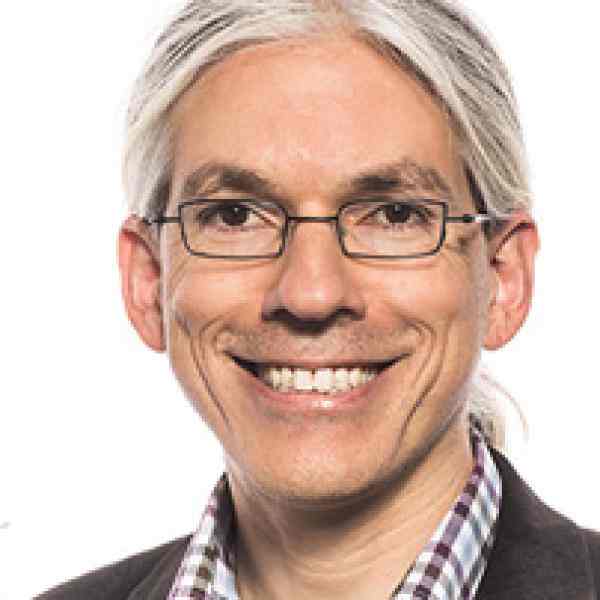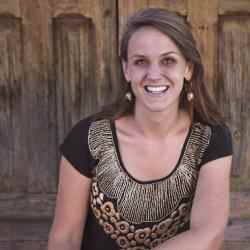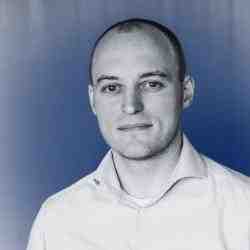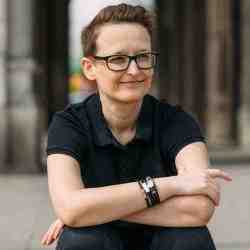Einführung
By putting production and distribution in the hands of locals, Martin is transforming access to high quality eye glasses to people with visual impairment, thereby enabling them to lead productive lives.
Die neue Idee
Martin Aufmuth has invented a system to produce affordable eyewear on site, in order to give 2.5 billion people with visual impairment access to eye glasses and enable them to lead productive lives. The newly made opticians create awareness for visual impairment, carry out the diagnosis according to local health regimes, and not only produce glasses, but also take care of their maintenance.
By putting both production and distribution in the hands of locals and cooperating closely with local communities and given infrastructure, Martin Aufmuth created a bottom-up social innovation that is profitable and independent from traditional patterns of development aid. With its superb scalability, “One Dollar Glasses” (ODG) can reach a high number of remote areas, which are not yet served by other solutions. Since 2013, he was able to sell more than 60,000 glasses in 8 countries, with a strongly rising trend.
Das Problem
According to the EYEllience Report (2015), 2.5 Billion people in the world have difficulties seeing properly, but can’t get access to the eyeglasses needed to correct their eyesight. 624 Million of these people are basically blind without glasses, 80% of them live in countries of the global south. Strong visual impairment is not only a health problem, but excludes people from attaining literacy, education, employment, as well as gaining access to (digital) information and participating as active citizens.
Studies show that eyewear significantly improves the socio-economic status of people by improving educational outcomes and dramatically enhancing productivity. The loss of income that results from the inhibited educational and economic activity of only the 158 million near-sighted people worldwide is estimated at 120 billion USD per year.
The major road blocks for this vast group of seeing-impaired people to get the eyewear needed are situated on the supply as well as on the demand side. First of all, there is a lack of opticians to diagnose and provide glasses in the countries of the global south.
On the demand side, a major road block is the fact that many people with poor eyesight aren’t even aware of the problem. They do not recognize their poor eyesight and how it affects their educational and economic opportunities. Hence, they also do not know about and see a value in the solution: In some regions of Burkina Faso, there isn’t even a local word for “eye glasses”. Even if there’s demand, traditional glasses are not affordable to most people and there is little to no access in rural areas.
There are promising strategies that have solved the problem of affordability, e.g. by providing cheap ready-made glasses made in Asia. However, these strategies have not solved four critical points: (1) Ready-made glasses do work for people who for instance have poor eyesight because of their age. However, a big proportion of people need individualized glasses adapted to their specific needs. (2) Providing eye glasses also needs to involve diagnosis and maintenance. (3) Not production, but distribution is the factor that increases costs especially in remote areas. To give access to eyewear, you must create smart outreach systems. (4) In countries like Brazil, imported glasses are significantly more expensive due to high customs on eyewear. With “One Dollar Glasses”, Martin is successfully addressing these challenges through empowerment of local systems.
Die Strategie
To provide people with the eye wear they need, “One Dollar Glasses” is addressing the road blocks on the supply as well as on the demand side. To offer a low-cost and effective solution, he has invented a portable non-electric bending machine for eye wear. Both, the machine and the glasses are extremely durable. The eyewear is adaptable to the client’s size, eye distance and, of course, eye sight. It is also adaptable in color. To meet the customer’s needs of variety in design, Martin has developed two new models of his glasses as well as sunglasses. Thanks to the technical innovation, the diagnosis and production of the glasses can be carried out at the same time. To distribute the glasses, Martin created a micro-entrepreneurship model for locals to become barefoot opticians. Martin is involving people of any educational level and background, providing income opportunities to disadvantaged groups such as youth, people with disabilities or the homeless. In intensive training courses that cover optics, production and business basics, “One dollar glasses” teaches locals all they need to know to build their own micro-enterprise. Furthermore, the trainees become multipliers of the concept, training new producers themselves. The local value creation not only creates income, but actually increases the appeal of the eyewear as many customers appreciate nationally made products. A qualitative evaluation with more than 500 users proved that the vast majority of “One Dollar Glasses” clients are very satisfied with their new eye wear. To ensure the quality of the opticians’ work, Martin has established a system with certified quality supervisors.
However, the technical innovation and business model is only one part of the solution. To address the lack of awareness, Martin has developed smart outreach approaches involving the community. He has captured that the main ingredient of success is to build trust with future clients. “One Dollar Glasses” is therefore closely cooperating with actors the local population trusts in, i.e. churches, local companies, educational institutions and local chiefs. Especially the cooperation with churches has proven to be very fruitful. As priests want their community to be able to read the bible and hymnbooks, they have a strong interest in improved eyesight and thus promote the visits of the barefoot opticians – with a remarkable number of community members joining and getting glasses. Martin is always experimenting with new ideas for outreach, such as organizing movie nights to raise awareness for both, the problem and the solution. Adaption to the economic circumstances is also key, especially with regard to the harvest cycle. Martin is now piloting a model where his barefoot opticians do the diagnosis before harvest, so people can save money to be able to buy glasses after harvest. Apart from the economic context, the model is also adaptable to the local health systems. In each country, “One Dollar Glasses” works under different health regimes. While in some countries the barefoot opticians can do the diagnosis themselves, in others they cooperate with local opticians. In Rwanda, “One Dollar Glasses” cooperates with local health workers, in Brazil with local hospitals. In Burkina Faso “Good Vision stores” are established that take also care of maintenance. As local citizens gain trust in these stores, they could possibly also sell other essential items such as mosquito nets in the future.
Martin has designed the business model so that it becomes self-sustaining and independent after kick-off. Each country launch is enabled through donations to finance the bending machines and trainings. The running costs of each “One Dollar Glasses” local Franchise are covered through earned income. While the production costs of one pair of glasses is approx. 50 cents, the opticians sell the product for 1-3 customary day wages. To compensate the outreach costs to remote areas, “One Dollar Glasses” is cross-subsidizing costs by selling eyewear in cities at a slightly higher price point. Martin’s business model works: In Burkina Faso alone, 30 people gain a full income by selling more than 1000 glasses per month. Martin is keeping the overhead costs low by making great use of high-skilled volunteers: More than 170 people support “One Dollar Glasses” in Germany voluntarily, from former bank directors in management positions to marketing and fundraising volunteers who have managed to mobilize more than 8000 private donors in 2016.
Martin is scaling through Social Franchise. He provides his franchisees with the know-how on management, outreach approaches and adaption to the local health and economic system. “One Dollar Glasses” is currently active in eight countries. The next step is to scale broadly as other countries as India and Bangladesh have already shown strong interest. In the next five years, Martin prospects to reach 1 Million people, with more than 500 jobs locally created.
Die Person
Martin has always been a creative mind. As a kind, he felt somehow trapped in the boundaries of school, preferring to work on his own ideas and inventions instead of doing homework. He had always had the wish to contribute meaningfully to society, especially fighting poverty, which he had read a lot of books about. However, it was only later in his life that he found a way of channeling his creative energy to social purposes: He was already working as a teacher when he came across the “Hunger project” in a public presentation. He was so impressed about the project that he started a private fundraising campaign for the project in his free time. Within only a few months, he had raised 550 000 Euros of solely private donations through inventing a smart mobilizing campaign. He wanted to show people that they can achieve great impact if everyone contributes a little share. It worked.
The idea of collective impact also was the guiding principle in his next venture: He started an environmental campaign that encouraged school children to save energy through an online game. More than 100.000 students participated. The project gained broad success, amongst others the auspicies by the federal minister of education. It made Martin understand that he has a great ability to move things. He is a strong learner and a master mobilizer. He is a genius inventor and at the same time a great communicator able to attract people to his ideas – a seldom combination of characteristics which became the basis of success for his Master piece: “One Dollar Glasses” (ODG).
The idea to found ODG came from a book from Paul Pollack (“Out of poverty”). Martin was astonished about the economic disadvantages caused by visual impairment and couldn’t let go the thought of doing something about it. Then, one day, in a “One Dollar Shop” he found a pair of ready-made glasses and took a decision: “There has to be a way of making affordable eyewear accessible to people and I will find out how”. He started researching about existing solutions for more than a year and discovered that they only covered parts of the problem and often lacked quality. The idea for “One Dollar Glasses” was born. Since the need is huge, ODG grew fast. Martin eventually quit his job as a teacher and within just a few years he made ODG a global Franchise.

 Tile image
Tile image Tile image
Tile image


